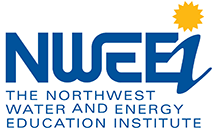By utilizing a variety of instructors from our expansive network of industry experts, we are able to provide training regionally, nationally and internationally.
We have the ability to customize, create, and deliver training for our partners that is tailored to meet specific educational requirements. Programs can cover a wide range of efficiency topics and can be delivered utilizing on-site facilities, remote locations and virtually on-line.
Training Topics
Energy Basics
- Introduction and overview of the Energy industry
- Sensible/latent heat equations; psychometrics
- Heating/cooling load equations and basic sizing
- Energy conversion between different fuel types
- Interpreting and understanding different Energy ratings (SEER, EERs AFUEs, COP)
- Conversion of different units of energy/power.
- Fundamental building systems and terminology
- The physics of heating, ventilation and air conditioning systems (HVAC)
- The refrigeration process
Residential Energy
- BPI Residential Inspector Certification (CSC)
- BPI Residential Auditor Certification (CSC)
- Energy efficient heating and cooling systems
- Stack effect, energy flow, pressure and heat transfer through building envelope
- Blowerdoor and ductblaster basics
- Basic heat loss calculations
- Indoor air pollution/air quality
Building System Operation
- HVAC Classification (Unitary, single zone and multi-zone secondary systems)
- Educational walkthroughs of HVAC equipment along with typical operation
- Typical HVAC operation (fans, pumps, dampers, control valves and ducting)
- Basics of electric, pneumatic and digital controls
- Control theory, device identification and typical operation
- Control strategies to estimate energy savings
- Compressed Air Challenge
- Water Efficiency & Conservation
- System Maintenance
Analysis of Energy Use in Commercial Buildings
- Utility Bill analysis and addressing high energy bill concerns
- Establishing an energy utilization index (EUI)
- End use splits for major energy using systems (Space Heating, Space Cooling, Ventilation, Lighting, Plugload, ect)
- Benchmarking buildings with EPA’s Portfolio Manager
- Energy/cost savings associated with different efficiency improvement strategies
- Evaluate lighting system performance of luminaries and associated components
- Lighting and HVAC interactions
- Calculating power density (watts sq/ft)
- Interpreting Auditing data
- Heating Degree Days, Bin Data, Hourly Simulation (eQuest)
- Energy Modeling and Simulation (eQuest / DOE2)
Energy Auditing Concepts
- Data collection and organizational techniques
- Datalogger installation/usage to verify equipment operation, building performance and energy consumption
- Determining energy/power usage in various systems
- Light sources, luminaries, controls & operations
- Creating and adjusting building baselines, cost avoidance, load factor, data analysis
- Supervised Field Audits (ASHRAE Levels I, II & III)
- Conducting a lighting audit
- Identifying energy efficiency measures
- Designing and writing a quality audit report
- Energy Savings Concepts and Calculations
(Simply payback, Life cycle cost, Low cost/no cost improvement) - Energy Investment Concepts and Calculations
(Cost estimating procedures, Time value of money, Cash flow equivalence, Cost-benefit analysis, Effects of tax credits, Depreciation vs Inflation and/or escalating fuel costs on energy investments)
Water Efficiency
- Introduction and overview of the water industry
- Conservation program design, implementation, evaluation, and marketing
- Water usage patterns for rural, urban, residential, and commercial sites
- Effective efficiency measures and utilizing alternate water sources
- Water distribution, flow, and elimination systems; basic hydraulics; quality issues; balance and time of use.
- Water accessibility, supply and demand issues, seasonal stressors, legal rights
- Monitoring, collecting, interpreting and analyzing data to evaluate effectiveness of programs
- Program modification over time to maximize savings
- Water and cost savings calculations that contribute to comprehensive cost/benefit analysis reports.
Resource Conservation Management
- Traditional Internal procurement processes
- Working with vendors to prioritize responsible procurement
- Supply chain, consumption, waste and climate change
- Indicators and benchmarks for the specific buildings
- Setting goals for performance, selecting and making appropriate calculations then accurately reporting performance

